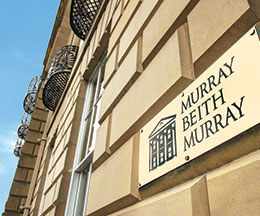A 65-year-old man has appeared in court in Edinburgh after admitting that he forged a relative’s signature on a fake will, reports the Evening News.
Murray Beith Murray LLP is a leading Scottish private client law firm.
For 175 years we have specialised in meeting the legal, financial and administrative needs of individuals and families, family trusts, charities and private companies.



